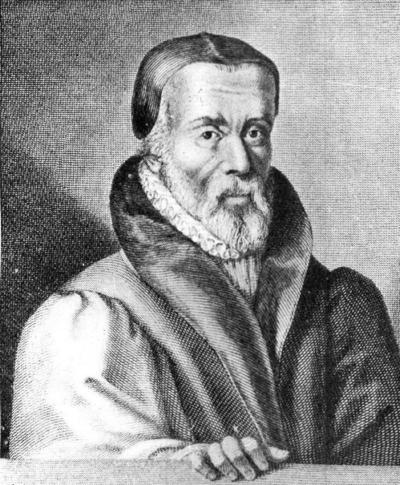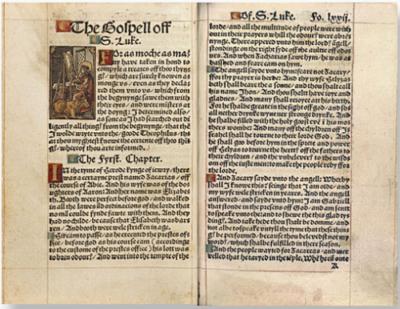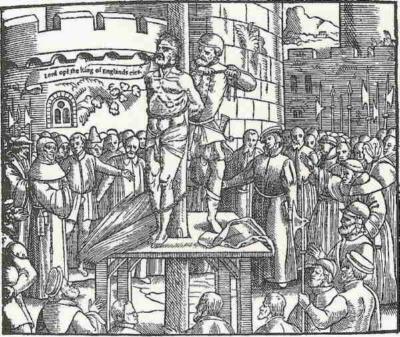 SKC Films Library SKC Films Library |
|||
|
|
|||
| SKC Films Library >> Religion
and Mythology >> Christianity (General) |
|||
| William Tyndale first to print an English language New Testament using the movable-type press
William Tyndale was born at North Nibley, England, about 1494. He entered Oxford in 1505, and left with a Master's in 1515. By the time of his graduation he was an avid Biblical scholar, and fluent in Hebrew, Greek, Latin, Spanish, French, Italian, English and German. He became tutor in the family of Sir John Walsh, at Little Sodbury, Gloucestershire, about 1520. An active supporter of the Reformation movement, Tyndale soon found himself at odds with the Walsh family, as well as with local Roman Catholic dignitaries, and was removed to London in October 1523. There, he gained support amongst the laity, but failed to soothe relations with the Church. He did, however, gain the friendship of Sir Humphrey Monmouth, who provided financial support for Tyndale's translation of the Scriptures from original Hebrew and Greek texts directly into common English. Fearful of reprisals from King Henry VIII and the Church in England, he left for the mainland in May 1524 and took up residence in Wittenberg (in present-day Germany). Tyndale is best remembered for being the first man to ever print the New Testament into English using the movable-type press invented by Johannes Gutenberg, which he completed in 1525-26. He went on to publish translations of the Pentateuch and the Books of Jonah, Judges, Ruth, First and Second Samuel, First and Second Kings, and First Chronicles. Because Tyndale's New Testament included notes and commentary promoting his personal views, the book was banned by state and Church authorities, and Tyndale was forced to move to Antwerp in 1534 to avoid arrest and trial for heresy. Tyndale was unable to avoid the authorities for long, however, as he was betrayed by a friend working for either King Henry, English Church officials, or both. He was arrested in 1535 and held in the Castle at Vilvoorden, Belgium, for over 500 torturous days. He was eventually tried and convicted of heresey and treason, and was burned at the stake in Vilvoorden on October 6, 1536. Tyndale being tied to the stake Other works by Tyndale include: A Pathway into the Holy Scripture; The Parable of the Wicked Mammon (1527); The Obedience of a Christian Man (1527-28); Practyse of Prelates (1530); Answer to the Dialogue (1531); Exposition of the First Epistle of St. John (1531); Prologue to Jonah (1531); An Exposition upon the V. VI. VII. Chapters of Matthew (1532); and A Brief Declaration of the Sacraments (1536, most likely published posthumously).
|
|||
SKC Films Library >> Religion and Mythology >> Christianity (General) This page was last updated on February 14, 2017. |


